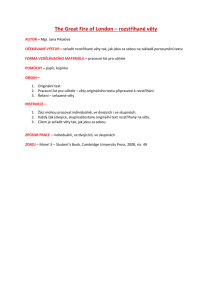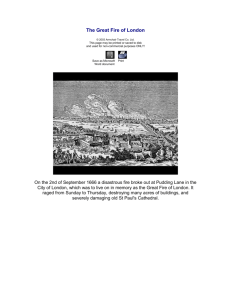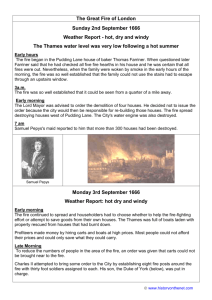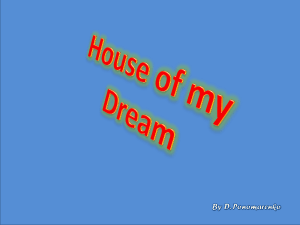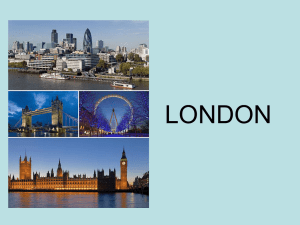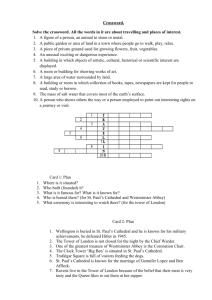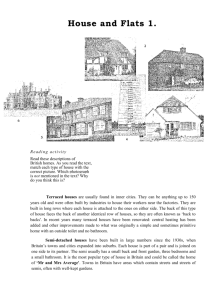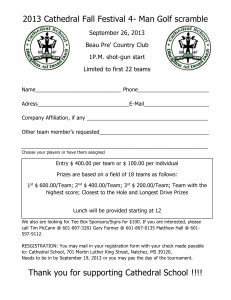The Great Fire of London – přesmyčky
advertisement
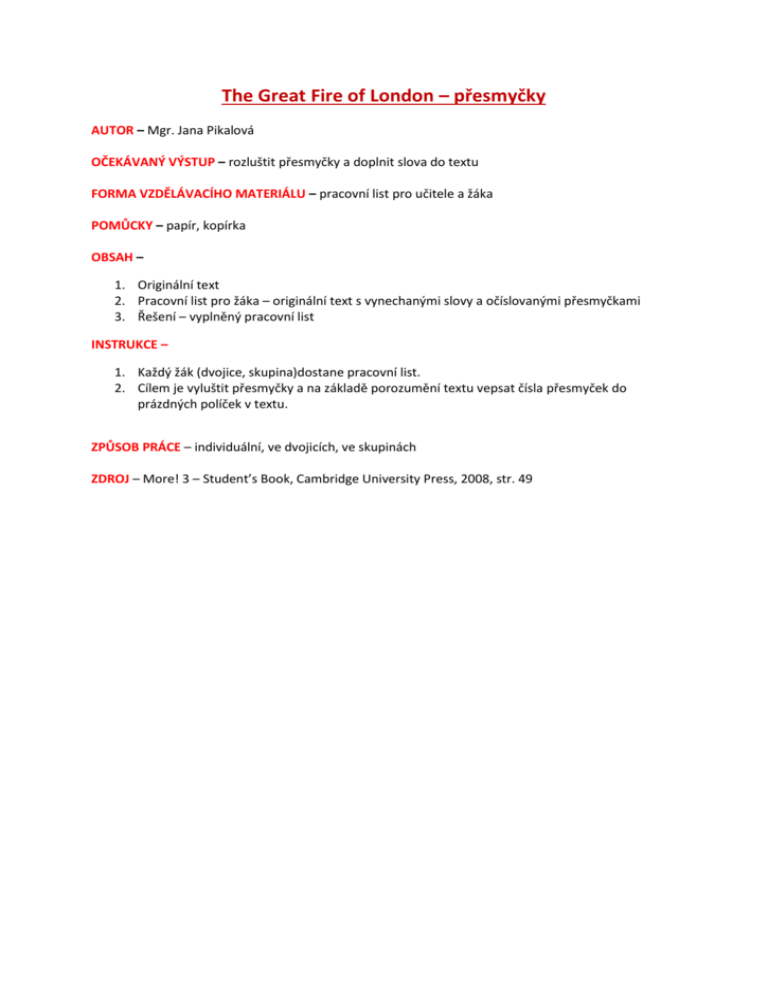
The Great Fire of London – přesmyčky AUTOR – Mgr. Jana Pikalová OČEKÁVANÝ VÝSTUP – rozluštit přesmyčky a doplnit slova do textu FORMA VZDĚLÁVACÍHO MATERIÁLU – pracovní list pro učitele a žáka POMŮCKY – papír, kopírka OBSAH – 1. Originální text 2. Pracovní list pro žáka – originální text s vynechanými slovy a očíslovanými přesmyčkami 3. Řešení – vyplněný pracovní list INSTRUKCE – 1. Každý žák (dvojice, skupina)dostane pracovní list. 2. Cílem je vyluštit přesmyčky a na základě porozumění textu vepsat čísla přesmyček do prázdných políček v textu. ZPŮSOB PRÁCE – individuální, ve dvojicích, ve skupinách ZDROJ – More! 3 – Student’s Book, Cambridge University Press, 2008, str. 49 Originální text The Great Fire of London In the 17th century, London was a city of narrow streets and wooden houses. On the evening of Sunday, September 2, 1666, a fire began in a house near London Bridge. The wind was strong, and the fire grew and grew. It went on during Monday and Tuesday. A famous writer called Samuel Pepys was living in London at the time. He wrote this in his diary: “I went out, and walked to the Tower. There I saw all the houses at the end of the bridge on fire. The people of the Tower told me that the fire started in the King’s baker’s house in Pudding Lane. It has already burned down a church and most of Fish Street. Everybody is trying to move their things, or throwing them into the river or taking them to boats.” On Wednesday, the fire got weaker, and on Thursday 6 September, it stopped completely. In those four days, the fire destroyed old St Paul’s Cathedral, 87 other churches and about 13,000 houses - about 80% of the city at that time. But amazingly, only about 15 people died. King Charles II decided to build London again, with wider streets and houses built of brick, not wood. One of the men who rebuilt the city was Christopher Wren, a great architect. His most famous building was the new St Paul’s Cathedral, which is still there now. Near St Paul’s, you can also see ‘The Monument’, a column built in the 1670s to remember the Great Fire. It is very close to the place where the fire began. Pracovní list pro žáka The Great Fire of London In the 17th century ....., London was a city of narrow ..... streets and wooden ..... houses. On the evening ..... of Sunday, September ..... 2, 1666, a fire began ..... in a house near London Bridge ...... The wind was strong, and the fire grew and grew. It went on during ..... Monday and Tuesday. A famous ..... writer ..... called Samuel Pepys was living in London at the time. He wrote this in his diary .....: “I went out, and walked ..... to the Tower ...... There I saw all the houses at the end of the bridge on fire. The people ..... of the Tower told me that the fire started ..... in the King’s baker’s house in Pudding Lane ...... It has already ..... burned down a church ..... and most of Fish Street ...... Everybody ..... is trying to move their things, or throwing ..... them into the river or taking them to boats.” On Wednesday, the fire got weaker ....., and on Thursday 6 September, it stopped ..... completely ...... In those four days, the fire destroyed ..... old St Paul’s Cathedral ....., 87 other churches and about 13,000 houses - about 80% of the city at that time. But amazingly ....., only about 15 people died. King Charles II decided ..... to build London again, with wider streets and houses built of brick, not wood. One of the men who rebuilt ..... the city was Christopher Wren, a great architect ...... His most famous building ..... was the new St Paul’s Cathedral, which is still there now. Near St Paul’s, you can also see ‘The Monument’ ....., a column 12 built in the 1670s to remember ..... the Great Fire. It is very close to the place where the fire began. 1 2 3 4 5 6 7 8 9 10 11 12 13 14 15 16 17 wtroe neabg Ietblru erbemrme tcynrue myecleltp dleipngduna trweir etsetr imlanyzga onweod mouncl yaird dguibnli unigdr aeyldar rnwaor 18 19 20 21 22 23 24 25 26 27 28 29 30 31 32 33 34 erkwea ebtrsmpee seydrdeto whgtionr elopep greibd diedecd akdlwe htrecacti negenvi ptdspeo cuhcrh saofum elarchadt rtdatse noumentm beyeryovd Řešení The Great Fire of London In the 17th century 5, London was a city of narrow 17 streets and wooden 11 houses. On the evening 27 of Sunday, September 19 2, 1666, a fire began 2 in a house near London Bridge 23. The wind was strong, and the fire grew and grew. It went on during 15 Monday and Tuesday. A famous 30 writer 8 called Samuel Pepys was living in London at the time. He wrote this in his diary 13: “I went out, and walked 25 to the Tower 1. There I saw all the houses at the end of the bridge on fire. The people 22 of the Tower told me that the fire started 32 in the King’s baker’s house in Pudding Lane 7. It has already 16 burned down a church 29 and most of Fish Street 9. Everybody 34 is trying to move their things, or throwing 21 them into the river or taking them to boats.” On Wednesday, the fire got weaker 18, and on Thursday 6 September, it stopped 28 completely 6. In those four days, the fire destroyed 20 old St Paul’s Cathedral 31, 87 other churches and about 13,000 houses - about 80% of the city at that time. But amazingly 10, only about 15 people died. King Charles II decided 24 to build London again, with wider streets and houses built of brick, not wood. One of the men who rebuilt 3 the city was Christopher Wren, a great architect 26. His most famous building 14 was the new St Paul’s Cathedral, which is still there now. Near St Paul’s, you can also see ‘The Monument’ 33, a column 12 built in the 1670s to remember 4 the Great Fire. It is very close to the place where the fire began. 1 2 3 4 5 6 7 8 9 10 11 12 13 14 15 16 17 wtroe neabg Ietblru erbemrme tcynrue myecleltp dleipngduna trweir etsetr imlanyzga onweod mouncl yaird dguibnli unigdr aeyldar rnwaor tower began rebuilt remember century completely Pudding Lane writer street amazingly wooden column diary building during already narrow 18 19 20 21 22 23 24 25 26 27 28 29 30 31 32 33 34 erkwea ebtrsmpee seydrdeto whgtionr elopep greibd diedecd akdlwe htrecacti negenvi ptdspeo cuhcrh saofum elarchadt rtdatse noumentm beyeryovd weaker September destroyed throwing people Bridge decided walked architect evening stopped church famous Cathedral started Monument everybody
